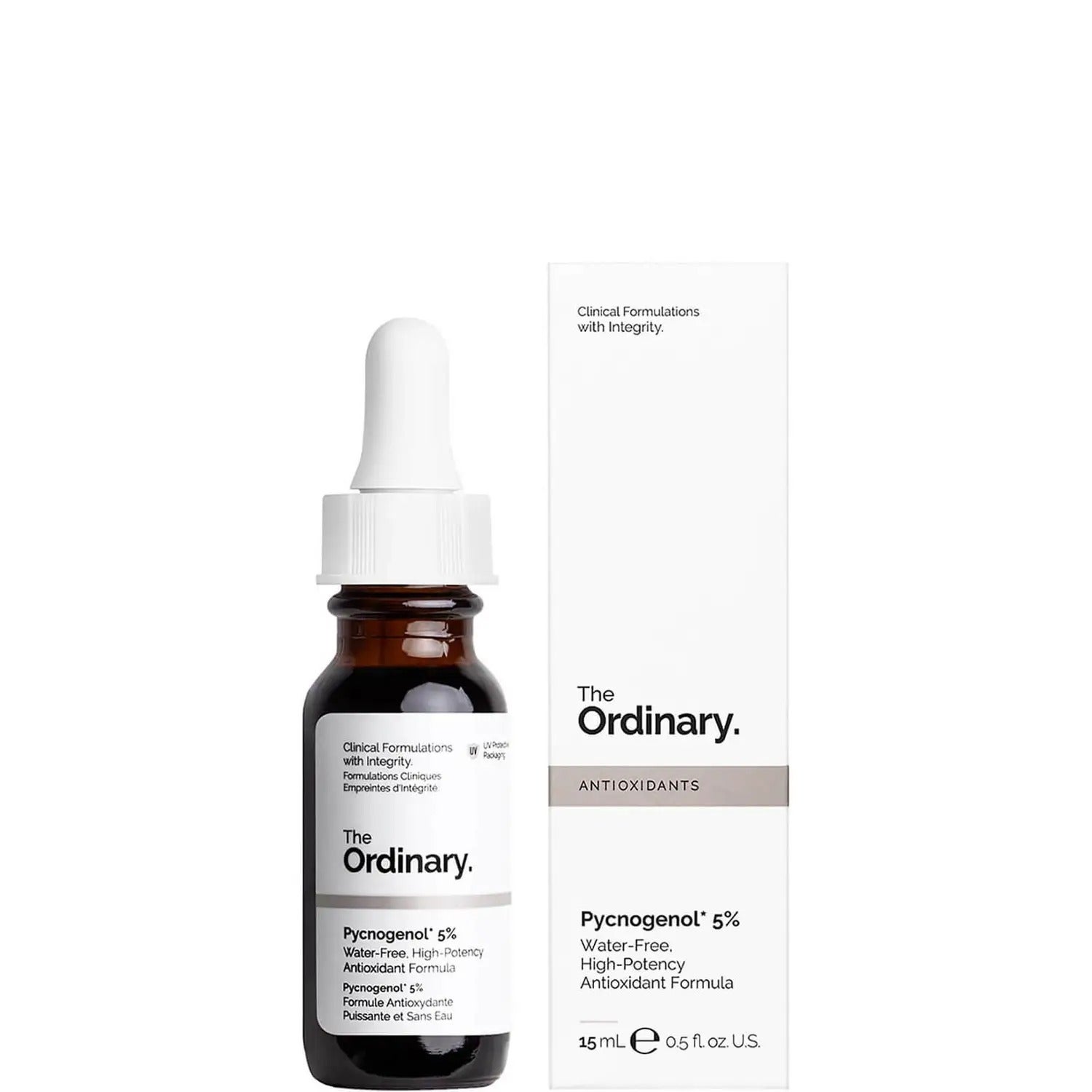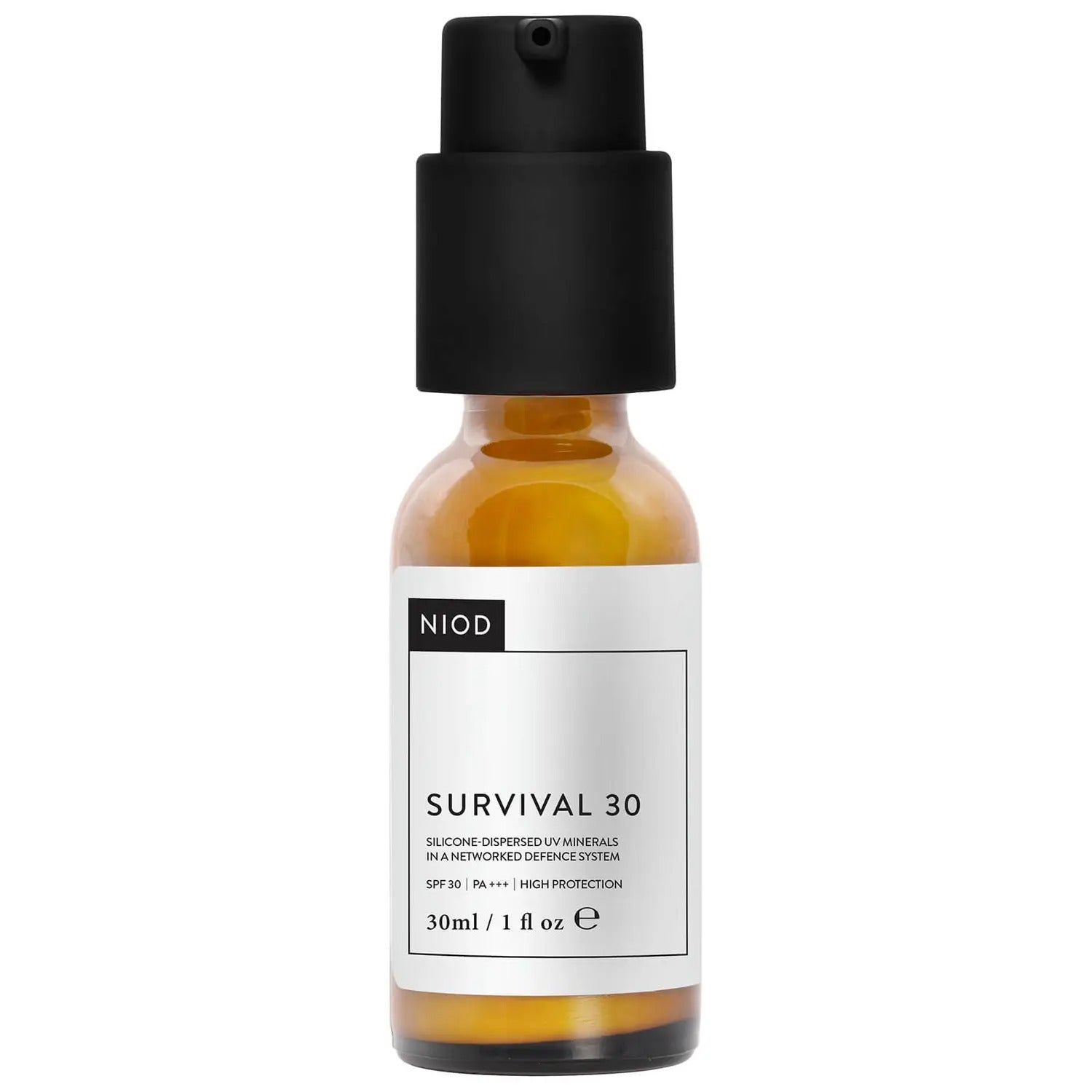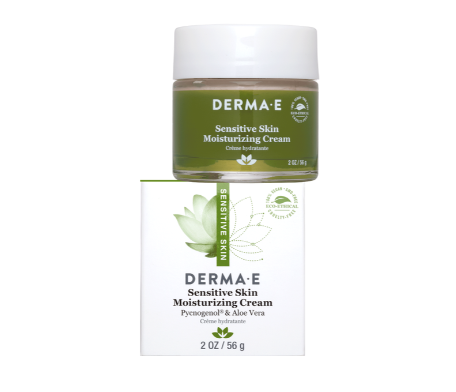Skincare Experts Are Ditching Vitamin C — Because This Is Even Better
Designed by Dionne Pajarillaga.
At Refinery29 Australia, we’re here to help you navigate this overwhelming world of stuff. All of our picks are independently selected and curated by the editorial team, but we may earn commission or other compensation from the links on this page.
There's a reason why everyone's so intrigued by vitamin C in skincare right now. As an antioxidant, the ingredient works to defend skin against the environment (including pollution, which can contribute to dullness and breakouts, as well as UV rays, which speed up the ageing process). Alongside brightening, it boosts collagen and elastin (essentially what makes skin plump) so that skin stays firm and supple.
AdvertisementADVERTISEMENT
It's no wonder, then, that brands are packing it into cleansers, serums and moisturisers. LookFantastic reports that vitamin C is actually one of the most Googled skincare ingredients this year, alongside retinol and hyaluronic acid. But what if we told you that there's another buzzy antioxidant vying for the top spot — and that it might be better for those who can't tolerate vitamin C?
What is pycnogenol and what are its benefits in skincare?
You'd be forgiven for not knowing what pycnogenol is — or even how to pronounce it (pick-NO-jen-oll). But it's slowly making its way into skincare and according to a handful of industry experts, its benefits are not to be sniffed at.
"Topical pycnogenol is an extract derived from the bark of French maritime pine trees," explains Dr Penelope Pratsou, consultant dermatologist and British Skin Foundation spokesperson. When it comes to skincare benefits, Dr Omar Tillo, medical director of Creo Clinic, says it's a powerful antioxidant: "Pycnogenol can help stimulate collagen production, and collagen gives skin its elasticity." Dr Tillo explains that collagen is produced less and less as a person ages but some studies have shown that pycnogenol may help with this. "It can also enhance the skin's ability to produce more hyaluronic acid to help maintain hydration," he says.
AdvertisementADVERTISEMENT
The ingredient is an all-rounder thanks to its ability to bring down inflammation (or redness and swelling) in the skin, says Dr Pratsou, particularly after exposure to the sun. "It is also thought to detect and neutralise free radicals induced by sun exposure and pollution." Free radicals are basically little molecules in the atmosphere which attach themselves to skin and cause damage in the form of dullness, clogged pores, fine lines and hyperpigmentation.
How does pycnogenol differ from vitamin C and which is better?
Dr Pratsou points out that both pycnogenol and vitamin C are praised for their antioxidant properties, protecting the skin from the aforementioned molecules flying around in the atmosphere. In some studies, though, she says that pycnogenol has proven even more powerful than vitamin C.
Dr Tillo seconds this and says that the ingredient can even help to recycle vitamin C products which have become oxidised (exposed to the air). This often happens if your vitamin C serum is housed in a dropper bottle, which you open every day. Commonly, the liquid takes on an orange tinge and that's when you know it's no longer effective on the skin. A few drops of pycnogenol can reverse that.
"Both vitamin C and pycnogenol are found to be helpful in protecting against and reducing pigmentation, as well as boosting collagen production," adds Dr Pratsou. It's even better news for those who find vitamin C irritating (it can often make the skin sting and itch) as pycnogenol is gentler on skin and generally well tolerated.
AdvertisementADVERTISEMENT
How do you use pycnogenol in a skincare routine?
Dr Tillo recommends finding a serum containing pycnogenol and using it before heavier creams such as moisturiser and SPF. "I would recommend using it once a day, in the morning," he says. You can use pycnogenol on its own or combined with your favourite vitamin C serum for amped-up skin protection.
If you want to skip the serum step, Dr Pratsou adds that the ingredient is also found in many moisturisers and while it's favoured in the morning before you head outside, you might prefer to use it in the evening. "There's evidence to support its use following sun exposure, due to its anti-inflammatory effect," she explains.
What are the best skincare products with pycnogenol?
One of the most talked-about pycnogenol skincare products is The Ordinary Pycnogenol 5%, $16.90. A serum, its main benefits are improving hydration in the skin and boosting elasticity. It does this by attaching itself to collagen and elastin (which keep skin plump and smooth). The five-star reviews speak for themselves. Some use the product alone after cleansing, while others mix a couple of drops in with their moisturiser for a glow. Like vitamin C, the product is being praised for evening out skin tone as well as reducing texture and minimising the appearance of pores.
NIOD Survival 30, $53.46, contains pinus pinaster bark extract (of which pycnogenol is the trademarked ingredient name) as well as mineral SPF 30 so it offers double protection against the environment in the form of sunscreen and antioxidants. Simply give it a shake and apply after cleansing. There's no need to follow with moisturiser or a targeted SPF as this does the job in one go.
AdvertisementADVERTISEMENT
If you're looking for a moisturiser, try Derma-E Sensitive Skin Moisturizing Cream, $31.55. The star ingredient is antioxidant pycnogenol, teamed with moisturising glycerin and soothing aloe. Thanks to the addition of vitamin E and jojoba oil, it's better suited to those with skin on the drier side.
Are there any side effects of pycnogenol in skincare?
"Pycnogenol is generally well tolerated," says Dr Pratsou, "and is therefore suited for use in most people with sensitive skin — unless they have a known pine allergy."
If you're introducing a new product or ingredient into your routine, it's a good idea to test it out on a patch of skin (for example, on the inside of your elbow) before using it on your face to rule out any potential reactions.
Want more? Get Refinery29 Australia’s best stories delivered to your inbox each week. Sign up here!
AdvertisementADVERTISEMENT









